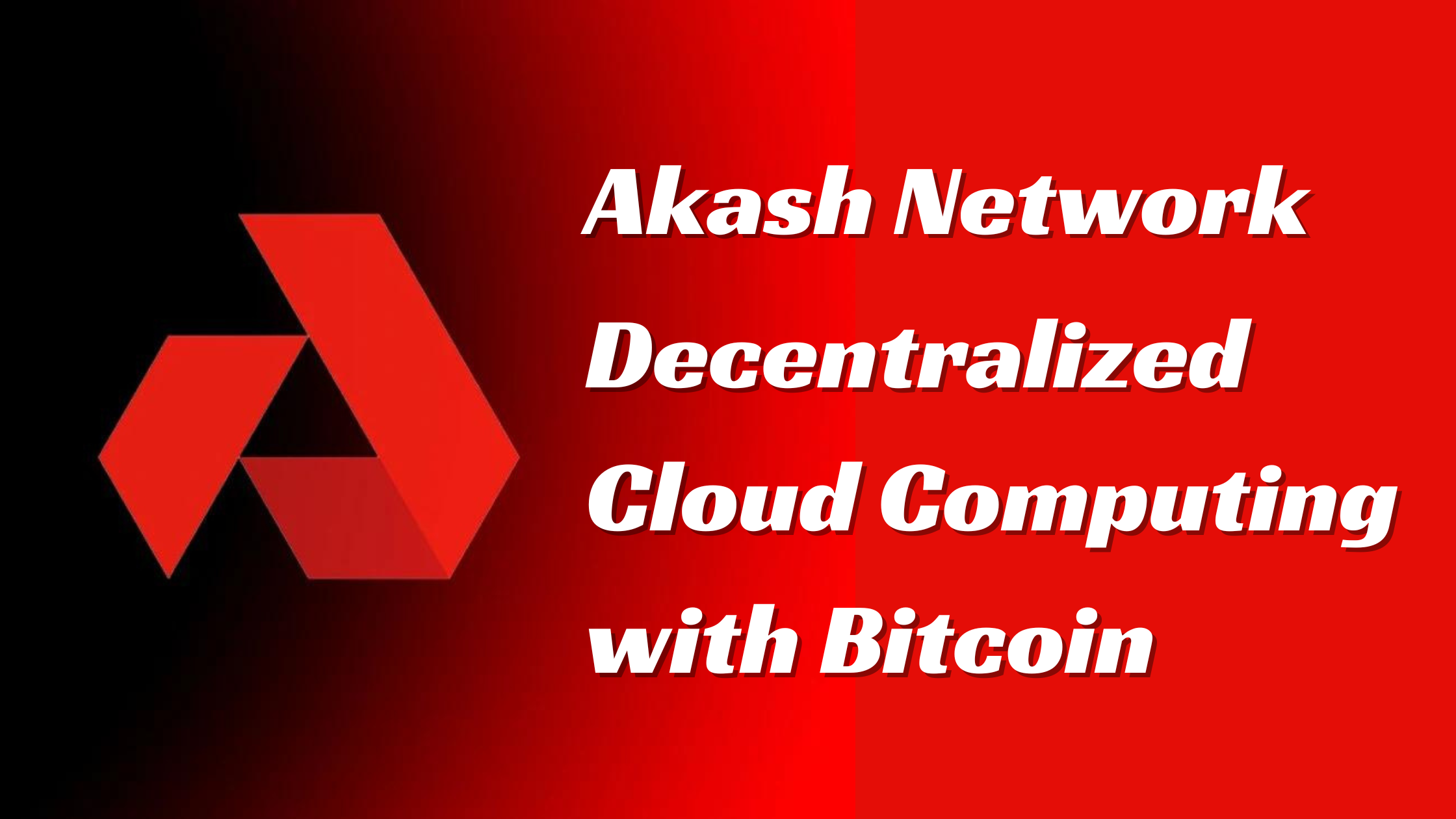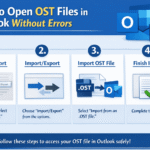Akash Network: Decentralized Cloud Computing with Bitcoin
- 1 Understanding Akash Network
- 1.1 What is Akash Network?
- 1.2 Key features and benefits
- 1.3 How it differs from traditional cloud providers
- 2 The Decentralized Cloud Computing Landscape
- 2.1 The rise of decentralized cloud computing
- 2.2 Akash Network’s position in the market
- 2.3 Competitors and their approaches
- 3 The Role of Bitcoin in the Akash Network
- 3.1 Bitcoin as collateral in Akash’s decentralized cloud marketplace
- 3.2 Benefits of using Bitcoin as collateral
- 3.3 Security and trust implications of Bitcoin in cloud computing
- 4 Technical Aspects of Akash Network
- 4.1 How Akash leverages smart contracts for cloud provisioning
- 4.2 Understanding the consensus mechanism
- 4.3 Akash’s integration with Bitcoin’s blockchain
- 5 Use Cases and Applications
- 5.1 Real-world applications of Akash Network
- 5.2 Case studies highlighting its success stories
- 5.3 Potential industries that could benefit from Akash
- 6 Challenges and Future Developments
- 6.1 Scalability and adoption challenges
- 6.2 Regulatory hurdles and legal considerations
- 6.3 Future roadmap for Akash Network and Bitcoin’s role
- 7 Conclusion
- 7.1 FAQs:
- 7.1.1 What is Akash Network?
- 7.1.2 How does Akash differ from traditional cloud providers?
- 7.1.3 What role does Bitcoin play in Akash Network?
- 7.1.4 How does Akash ensure security and trust in its platform?
- 7.1.5 What are some real-world applications of Akash Network?
- 7.1.6 What challenges does Akash Network face?
- 7.1.7 What is the future roadmap for Akash Network?
In Short:
- Akash Network: A decentralized cloud computing platform leveraging Bitcoin for a transparent marketplace.
- Key Features: Cost-efficient access to global computing resources through decentralized nodes.
- Impact: Reshaping cloud computing with lower costs, enhanced security, and blockchain transparency.
Decentralized cloud computing has emerged as a revolutionary concept in technology and blockchain. At the forefront of this transformation is Akash Network, a groundbreaking platform that leverages the power of Bitcoin to create a decentralized cloud marketplace. In this article, we will explore the intricacies of Akash Network, its core features, the role of Bitcoin, and its implications in the cloud computing landscape. To learn more about investment education firms, visit https://immediate-altcoin.com/ for valuable insights integrated into the discussion.
Understanding Akash Network
What is Akash Network?
Akash Network is a decentralized cloud computing platform offering a computing resource marketplace. It enables individuals and organizations to buy and sell unused server capacity. The platform is built on blockchain technology, providing a secure and transparent environment for cloud resource allocation.
Key features and benefits
- Cost Efficiency: Akash Network allows users to access cloud computing resources at a fraction of the cost traditional cloud providers charge. This cost-effectiveness is achieved by utilizing idle server capacity.
- Decentralization: Unlike centralized cloud providers, Akash Network operates on a decentralized network of nodes, reducing the risk of downtime and ensuring data security.
- Global Reach: The platform offers a global network of computing resources, making it accessible to users worldwide.
How it differs from traditional cloud providers
Traditional cloud providers like AWS, Azure, and Google Cloud use centralized data centers to offer cloud services. In contrast, Akash Network taps into underutilized data centers, creating a decentralized cloud ecosystem.
The Decentralized Cloud Computing Landscape
The rise of decentralized cloud computing
Decentralized cloud computing has gained momentum due to its potential to disrupt the traditional industry. Users increasingly seek alternatives offering greater transparency, lower costs, and enhanced security.
Akash Network’s position in the market
Akash Network has positioned itself as a leading player in the decentralized cloud computing space. Its unique approach to cloud provisioning has garnered attention and interest from users and developers alike.
Competitors and their approaches
While Akash Network is at the forefront of decentralized cloud computing, it faces competition from other blockchain-based cloud platforms, such as Golem and Sia. Each platform offers a unique approach to decentralized computing, contributing to the growing diversity in the market.
The Role of Bitcoin in the Akash Network
Bitcoin as collateral in Akash’s decentralized cloud marketplace
Akash Network incorporates Bitcoin as collateral to ensure trust and security within its marketplace. Users seeking cloud resources are required to lock up a certain amount of Bitcoin as collateral, assuring that they will fulfill their obligations.
Benefits of using Bitcoin as collateral
The use of Bitcoin as collateral offers several advantages. It provides a censorship-resistant and immutable form of security, making it nearly impossible for malicious actors to manipulate the marketplace. Bitcoin’s liquidity and widespread acceptance make it an ideal choice for securing transactions.
Security and trust implications of Bitcoin in cloud computing
By leveraging Bitcoin’s security features, Akash Network mitigates the risk of disputes and ensures that providers and users can trust the platform. This trust is crucial in a decentralized environment where intermediaries are eliminated.
Technical Aspects of Akash Network
How Akash leverages smart contracts for cloud provisioning
Akash Network utilizes smart contracts to automate the provisioning and management of cloud resources. These smart contracts execute code that specifies resource requirements, pricing, and terms of service, streamlining the entire process.
Understanding the consensus mechanism
Akash Network employs a unique consensus mechanism called the “Proof-of-Stake” (PoS) blockchain. This PoS blockchain helps secure the network and efficiently allocate resources.
Akash’s integration with Bitcoin’s blockchain
Integrating Akash with Bitcoin’s blockchain ensures that collateral is securely managed and transactions are recorded transparently. This integration strengthens the platform’s reliability and trustworthiness.
Use Cases and Applications
Real-world applications of Akash Network
Akash Network is suitable for various applications, including web hosting, content delivery, machine learning, and more. Its cost-efficiency and decentralization make it a compelling choice for multiple industries.
Case studies highlighting its success stories
Several organizations and developers have already adopted Akash Network for cloud computing. Case studies and success stories showcase how the platform has benefited businesses and individuals.
Potential industries that could benefit from Akash
Industries such as finance, healthcare, and e-commerce stand to gain significantly from Akash Network’s cost-effective and secure cloud computing services.
Challenges and Future Developments
Scalability and adoption challenges
One of the key challenges facing Akash Network is the need to scale its network and attract more users and providers. Overcoming this hurdle is essential for long-term success.
Regulatory hurdles and legal considerations
The intersection of blockchain technology, decentralized cloud computing, and cryptocurrencies raises regulatory questions that Akash Network and similar platforms must navigate.
Future roadmap for Akash Network and Bitcoin’s role
Akash Network continues to evolve with ongoing development and enhancements. The platform’s future roadmap and Bitcoin’s growing role will shape the decentralized cloud computing landscape.
Conclusion
In conclusion, Akash Network’s innovative approach to decentralized cloud computing, powered by Bitcoin, offers a compelling alternative to traditional cloud providers. Its cost-efficiency, security, and transparency make it a noteworthy player in the evolving landscape of cloud computing. As the platform continues to grow and adapt, it holds the potential to reshape how we think about cloud computing in the digital age, all while harnessing the power of blockchain technology and Bitcoin.
FAQs:
What is Akash Network?
Akash Network is a decentralized cloud computing platform that allows individuals and organizations to buy and sell unused server capacity on a blockchain-based marketplace.
How does Akash differ from traditional cloud providers?
Unlike traditional providers like AWS or Azure, Akash taps into underutilized data centers, offering a decentralized cloud ecosystem with lower costs and enhanced security.
What role does Bitcoin play in Akash Network?
Bitcoin acts as collateral in Akash’s marketplace, ensuring trust and security by requiring users to lock up Bitcoin to access cloud resources.
How does Akash ensure security and trust in its platform?
Akash leverages Bitcoin’s security features and smart contracts to mitigate risks, ensuring transparency and reliability in cloud resource allocation.
What are some real-world applications of Akash Network?
Akash is suitable for web hosting, content delivery, machine learning, and more, offering cost-effective and secure cloud computing services.
What challenges does Akash Network face?
Scalability and adoption hurdles, along with regulatory considerations, pose challenges for Akash’s long-term success and growth.
What is the future roadmap for Akash Network?
Akash continues to evolve with ongoing development, focusing on scaling its network and further integrating Bitcoin’s role in decentralized cloud computing.

















